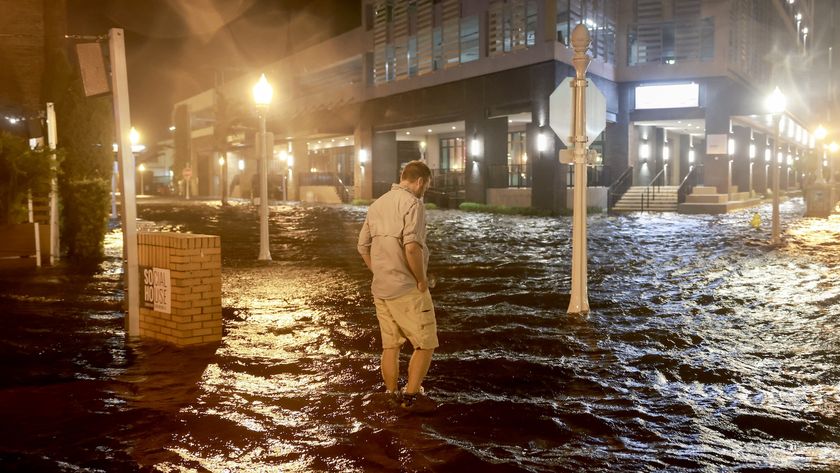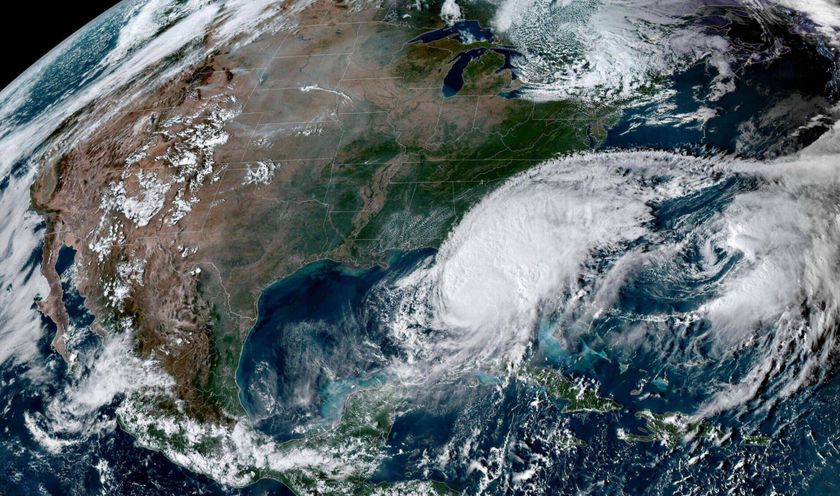Emergency rescue crews in the Gulf of Mexico are in a race against nature to complete oil spill cleanup operations before the start of hurricane season, which begins June 1.
"This [oil leak] could go on for 60 to 90 days or more," said Doug Helton, coordinator of incident operations for the National Oceanic and Atmospheric Administration (NOAA). "There's a lot of things that could go on in that time period that would greatly impact our model, like the fact that hurricane season is starting in a month."
The effects a hurricane could have on the spreading oil spill are impossible to predict, but one thing is certain: Cleanup efforts would have to halt completely in the face of a big storm, said Dennis Feltgen, a spokesperson for the National Hurricane Center.
"You can't have a cleanup in a hurricane. That's kind of a no brainer," Feltgen said. "You can only try to get this cleaned up with all possible speed" before hurricane season starts.
How a hurricane could impact the spread of the oil spill would depend on too many factors to calculate properly, Feltgen said.
"You could come up with all sorts of scary scenarios and make a movie of the week, but it would just be pure conjecture," Feltgen told LiveScience. "There's so much that comes into play … [such as] the size of the spill, how deep it is, the size of the storm, the storm's angle of approach, and its forward motion."
Another interesting question is what effect the oil spill could have on a hurricane?
Sign up for the Live Science daily newsletter now
Get the world’s most fascinating discoveries delivered straight to your inbox.
Feltgen said that if an oil slick is large enough — on the order of several square miles — it could slow or even prevent the genesis of a hurricane or tropical storm in the Gulf of Mexico because the oil layer would prevent the evaporation of seawater, which is crucial for a hurricane or storm to gather power.
However, if a fully formed hurricane were to barrel into the Gulf of Mexico, an oil slick — even a large one — would likely have no effect on the storm because its winds would churn the surface ocean, naturally breaking the slick into smaller pools of oil and allowing evaporation to occur.
U.S. Coast Guard petty officer Brandon Blackwell said the agency is very aware of the looming deadline.
"We're trying to mitigate the situation as quickly a possible," Blackwell said. "I'm not saying that it will be taken care of before [hurricane season starts], but we're trying our best."
Stephanie Pappas contributed to the reporting of this article.
- Natural Disasters: Top 10 U.S. Threats
- Experts: Most of the Gulf Oil Spill Won't Be Cleaned Up
- 7 Surprising Uses of Oil












